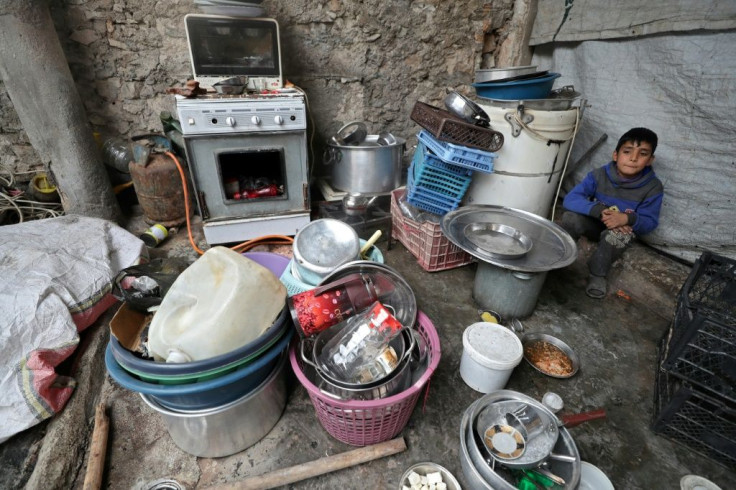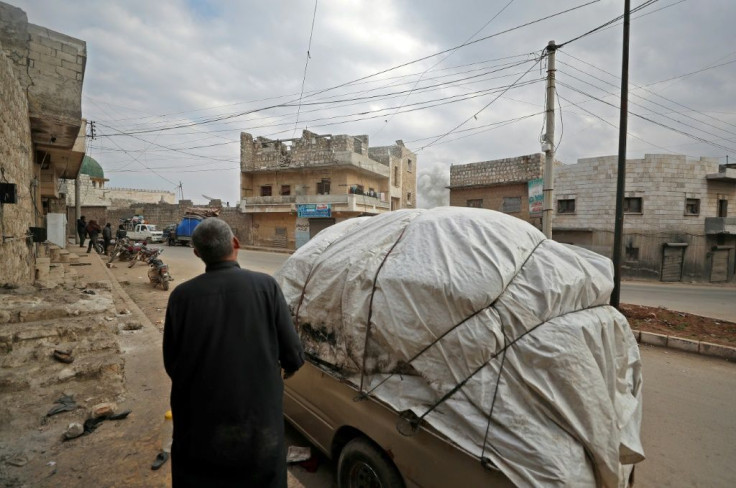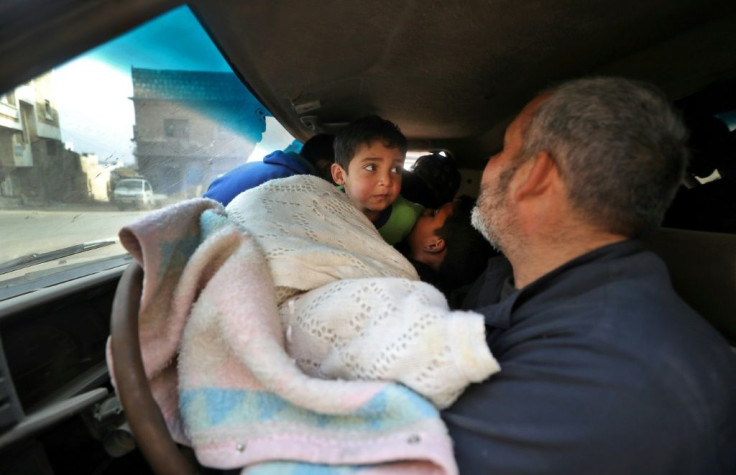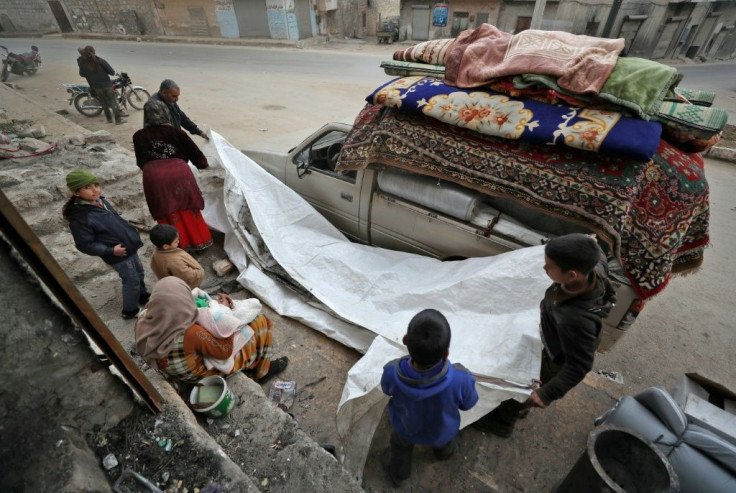In NW Syria, Children Tossed About By War And Exile

Mustafa and Ines were helping their parents load the van once again to flee advancing Syrian troops, when bombardment hit the area and sewed panic on the street.
The 12-year-old boy flinched and leapt onto the truck stacked with rugs and mattresses, followed by his 10-year-old sister, her face contorted by fear.
The scene has become routine for residents of northwestern Syria, where Russian-backed government troops have been conducting a devastating offensive to flush rebels out of their last bastion.
The government has made major gains since December, prompting 900,000 people to flee their homes and shelters in the thick of winter in the biggest displacement of civilians of the nearly nine-year conflict.
"Our life boils down to this now -- bombs and fear," said the children's father Abu Mohammed.
The town of Daret Ezza lies west of Syria's second city Aleppo and close to the border with Turkey that remains firmly closed.
It was only a month ago that, forced on the road by a previous phase of the offensive, he washed up in this hilly region still controlled by jihadists and their rebel allies.
The man in his fifties is originally from the south of Idlib province, which the government forces retook weeks ago, at the beginning of their push north.

"We're scared for our children, this is what leads us to leave every time," Abu Mohammed said.
To live in Daret Ezza, his family had to rent a single-room workshop with blackened walls, separated from the concrete yard by nothing but a torn plastic sheet.

"This is what we could afford," Abu Mohammed said.
The family spent the winter coughing and sneezing, he said.
In some mountain areas of Idlib and neighbouring Aleppo province, the temperature dipped to minus 7 Celsius and several children have died of exposure.
As an estimated three million people, half of them children, get cornered in an ever shrinking enclave, aid groups warn of an unprecedented humanitarian emergency.

"The situation is getting worse, fear is growing, we can't calm the children down when they hear a jet or a bomb," the father said.
Hiding under a black winter coat and a green woolly hat, Ines ia the most traumatised of Abu Mohammed's four children.
"She freezes completely when the bombardment starts," her father said.
"I block her ears and tell her 'Don't be scared, it's far away, there won't be strikes'. But still she screams and cries," he said.
At night she sleeps with her head under the pillow, so as not to hear the warplanes passing overhead.
Even as the truck got ready to move, Abu Mohammed wasn't sure where his family would sleep next.
"We might spend the night with a cousin who took a tent as he left," he said.
Abu Mohammed said they would head towards Azaz, a town considered safer because it lies on the Turkish border.
The truck is so packed that some will have to endure the ride balancing on top of the pile of mattresses in the back.
A stove, a sewing machine and some cooking pots had to be left behind.
A moving video of a father teaching his three-year-old daughter to treat air strikes and shelling as a game was widely shared on social media this week, drawing more attention to the plight of children in the conflict.
According to Save The Children, at least seven children have died since December from the cold or bad living conditions in the camps for the displaced.
Most of the nearly one million people displaced by the offensive on Idlib are women and children, who often have to burn furniture or whatever they can find to keep warm.
The United Nations has called for a ceasefire to help tackle what it has warned could become the worst humanitarian disaster of the war.
But on Wednesday Russia blocked a ceasefire resolution at the UN Security Council.
© Copyright AFP 2024. All rights reserved.





















